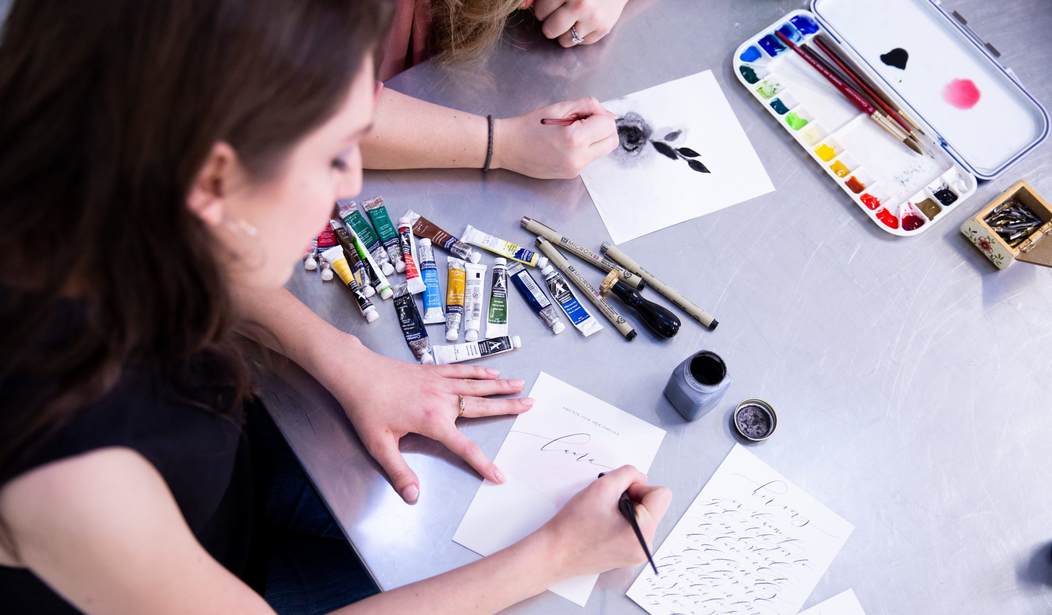On Monday, the Arizona Supreme Court ruled that the City of Phoenix could not use a criminal law to force a Christian arts studio to make wedding invitations for a gay wedding. Joanna Duka and Breanna Koski, owners of Brush & Nib Studio, faced up to six months of jail time, $2,500 in fines, and three years of probation for each day the city would find them in violation of the law.
“The rights of free speech and free exercise, so precious to this nation since its founding, are not limited to soft murmurings behind the doors of a person’s home or church, or private conversations with like-minded friends and family,” Justice Andrew Gould wrote in the majority opinion for Brush & Nib Studio v. City of Phoenix. “These guarantees protect the right of every American to express their beliefs in public. This includes the right to create and sell words, paintings, and art that express a person’s sincere religious beliefs.”
“With these fundamental principles in mind, today we hold that the City of Phoenix cannot apply its Human Relations Ordinance to force Joanna Duka and Breanna Koski … to create custom wedding invitations celebrating same-sex wedding ceremonies in violation of their sincerely held religious beliefs,” Gould wrote.
Duka and Koski create custom artwork using hand painting, hand lettering, and calligraphy to celebrate weddings and other events. Phoenix interpreted the ordinance City Code Section 18-4(B) in a manner that would force artists like them to celebrate and promote same-sex marriage in violation of their beliefs.
Alliance Defending Freedom (ADF) represented Brush & Nib in the case. While Phoenix claimed that Duka and Koski were discriminating against people on the basis of their sexual orientation, ADF attorneys explained that Duka and Koski decide what art they create based on the art’s message, not the customer’s personal characteristics.
“These women of deep religious faith gladly serve everyone, including those in the LGBT community; their faith simply prevents them from expressing certain messages for anyone,” the attorneys argued. “So this case is not about whether businesses can decline to serve an entire class of people. It is about whether artists can freely choose which messages their own art conveys.”
“The government shouldn’t threaten artists with jail time and fines to force them to create custom artwork, such as wedding invitations, expressing messages that violate their beliefs, and that’s what the court has affirmed today,” Jonathan Scruggs, senior counsel with ADF, said in a statement on the ruling. “Joanna and Breanna work with all people; they just don’t promote all messages.”
“They, like all creative professionals, should be free to create art consistent with their convictions without the threat of government punishment. Instead, government must protect the freedom of artists to choose which messages to express through their own creations,” he added. “The court was right to find that protections for free speech and religion protect the freedom of creative professionals to choose for themselves what messages to express through their custom artwork.”
“We are pleased that the city can no longer enforce its ordinance in a manner that violates freedom of expression or the ability of Joanna and Breanna to live and work consistently with their faith,” Scruggs added. “Joanna and Breanna will now be able to create custom wedding invitations and to communicate about their beliefs without fear of government punishment, as any artist should be free to do. This isn’t just a victory for them. It’s a victory for everyone.”
Artistic professionals — whether they be bakers, florists, or calligraphers — should not be forced to endorse ideas and events with which they disagree. Supreme Court Justice Anthony Kennedy, in the Obergefell v. Hodges (2015) decision legalizing same-sex marriage, wrote that “it must be emphasized that religions, and those who adhere to religious doctrines, may continue to advocate with utmost, sincere conviction that, by divine precepts, same-sex marriage should not be condoned.”
“The First Amendment ensures that religious organizations and persons are given proper protection as they seek to teach the principles that are so fulfilling and so central to their lives and faiths, and to their own deep aspirations to continue the family structure they have long revered. The same is true of those who oppose same-sex marriage for other reasons,” Kennedy wrote.
Yet LGBT activists have pushed a restrictive interpretation of civil rights law that redefines discrimination on the basis of sexual orientation to include free speech refusals to endorse a gay wedding. The Arizona Supreme Court rightly defended free speech and religious freedom in this case, and other courts should follow suit.
Follow Tyler O’Neil, the author of this article, on Twitter at @Tyler2ONeil.









Join the conversation as a VIP Member